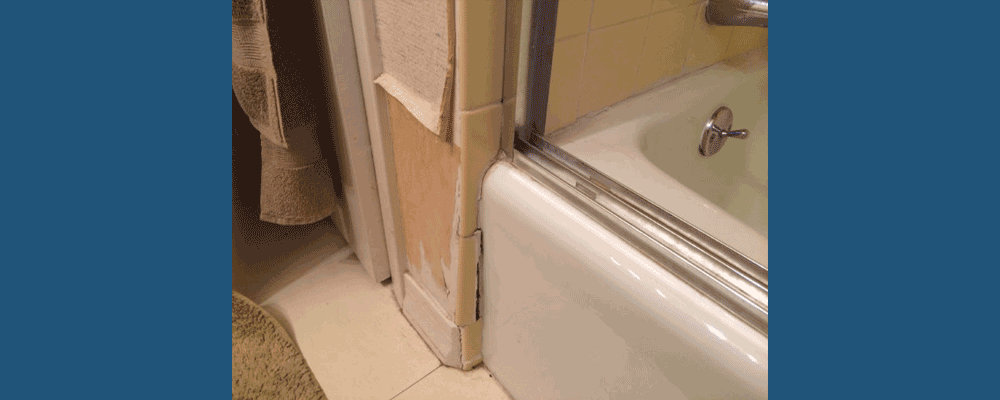Water damage is is a threat and can build up over an extended period of time, eventually leading to outbreaks of mould, softening of walls and ceilings, cracks in sealant and tiles, and distortion of base floors and frames.
Bathroom water damage is incredibly common, as we often don't realise it's happening until something major happens to attract out attention, such as a bulge appearing in the ceiling or the sealant connecting your bath to the floor becoming cracked. The frequent use of water in the bathroom makes it extremely vulnerable for moist accumulation and potential water damage. By inspecting it regularly, you can reduce water related damages.

The biggest single contributors to water damage are the shower and bathtub, where litres of water are distributed every day. You can minimise damage by doing the following solutions:
Check for missing or cracked tiles and replace them immediately. Supplement the tiles with grout that is properly sealed and check for any potential leaks.
There is a lot of water in your bathroom. Keep it off the floor by drying it up after a shower, hair washing or any other moisture producing activity in the bathroom. Make sure you minimise the risk of excess water by placing bathmats on the floor outside your shower.
Water builds up in a bathroom because there is no moving air. Humidity can be just as damaging as actual wetness, especially if it settles in cooler temperatures. To avoid this happening, install an exhaust fan attached to the light switch to draw out any moisture after a shower.
Check Under the Sink
Look under the sink and make sure there are no drips from the faucet and no leaks from the trap. You may simply need to check and clean the trap once every month or so.
Check sink seals on a regular basis for cracks or leaks and replace them when necessary.

If the sink drains slowly, the drain may be clogged. Check the tap and if that doesn't help, if pressure from a plunger doesn't work, give a plumber a call.
If you are having issues with water damage in your bathroom - call a bathroom plumber today.
